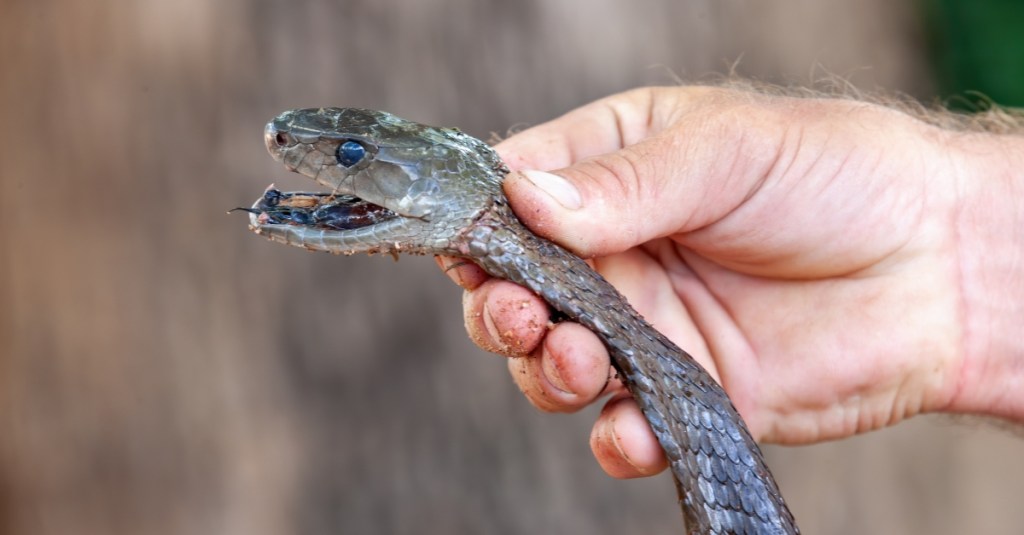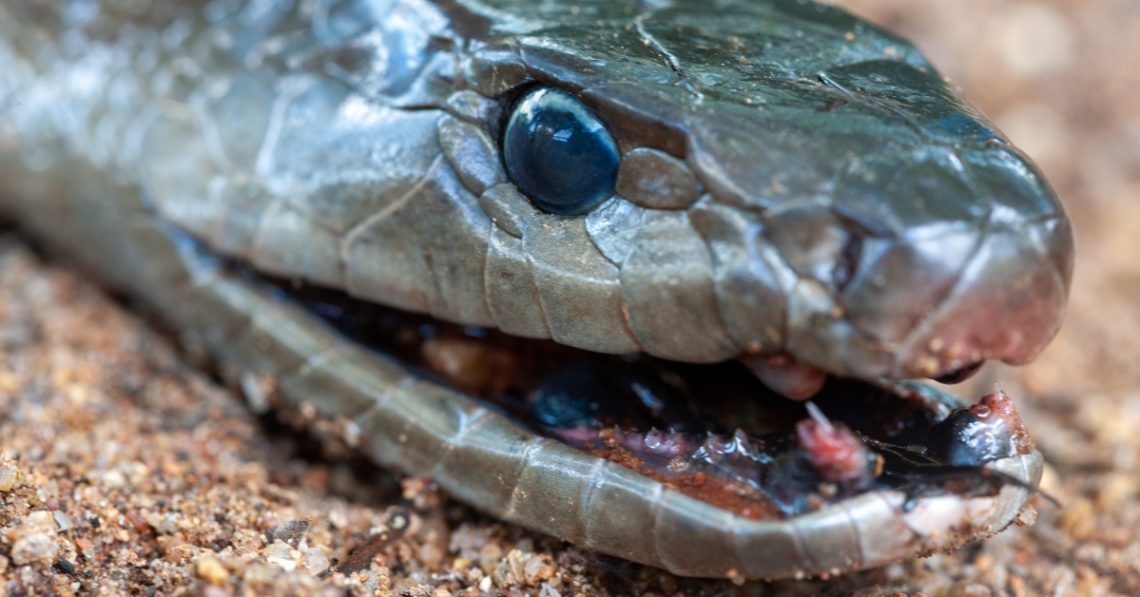Getting bitten by a mamba snake probably sucks. But, according to a team of researchers, mamba venom doesn’t attack you once; it strikes you twice. The second attack is currently unaccounted for by any antivenom presently available on the market.
The researchers recently published their findings in probably the best-named research journal I’ve ever come across: Toxins. Heck yeah. That’s metal as f**k for an outlet that publishes scientific research.
In the paper’s introduction, the research team states that in sub-Saharan Africa, there are approximately 500,000 “envenomings.” That’s a term I recently learned, referring to being bitten or stung by a venomous animal.
It results in over 30,000 deaths per year. That’s an astoundingly huge number of deaths, though the paper doesn’t specify if that’s just in sub-Saharan Africa or across the world.

Snake Bites Are Bad—Mamba Bites Are a Whole Different LEvel of Pain
Nevertheless, many people get bitten every year. And a lot of them die from it.
The researchers say that venomous bites from the likes of the Black mamba, the Western Green mamba, and Jamison’s mamba play cruel tricks on your nervous system. If humans caused them, it would likely be considered a violation of the Geneva Convention.
The scientists found that these snakes deliver a single neurotoxic dose of venom that immediately gets to work killing you, but also tries to plan by subverting the effects of any antivenoms that might be administered, ensuring that it’s going to kill you one way or another.
Dr. Bryan Fry, a biologist at the University of Queensland and co-author of the study, explains that the venom initially causes flaccid paralysis by blocking nerve signals to the muscles. We already knew that, and we have treatments for them in the form of antivenoms.
But then, after antivenom is administered and the patient seems to be improving, the venom overstimulates the nervous system and triggers spastic paralysis, making the bite victim go from limp to twitchy, thus finally explaining why victims of mamba bites who have been administered antivenom quickly relapse into seizures when the antivenom should have solved the problem.
Adding to the complication is the fact that mambas from different regions produce chemically distinct venoms. That means a one-size-fits-all antivenom is just a pipe dream. If a mamba ever bites you, you had better hope that your nearby hospital has read this study. Because if they, as Lee Jones points out, administer Kenyan black mamba antivenom after a South African black mamba has bitten you, you’re screwed.
Fry and his team are now calling for region-specific, precision-engineered antivenoms that account for these venom variations and neurological curveballs. Double-check those boots before you put them on.
The post Snake Bites Suck. Mamba Bites Are Worse. appeared first on VICE.




